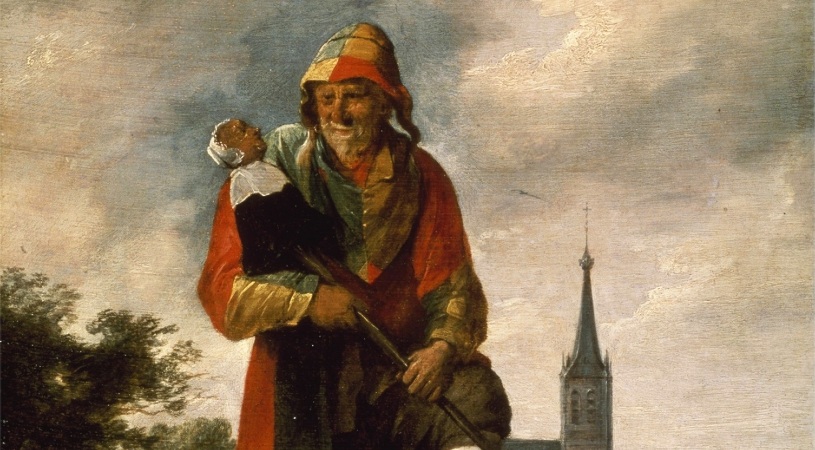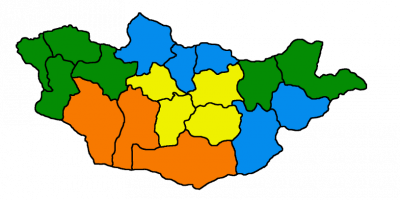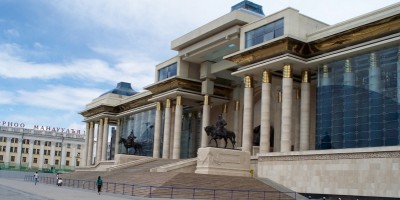This week popular historian and former politician B. Batbayar (a.k.a. Baabar) published a rather scathing editorial entitled “The Absurd History of Legislators” directed at “resource nationalists” and the self-destructive attempts by parliament to appease them with legislation aimed at foreign investors. It struck me as a very compelling counter-balance to the usual inclination of international observers to view public opinion in Mongolia as being fantastically homogeneous and fully aligned against foreign investment.
Mr. Baabar’s opinion is only one, but it is an opinion read by many. He has more than 34,000 followers on Twitter, and the editorial had more than 84,000 views as of the writing of this post! It is worth a read. Here are a few choice passages I have translated from the original (see the footnotes and here) to give a flavor of his argument.
On the foreign investment law passed just before the parliamentary elections in 2012:
“It hasn’t taken long to assess the impact [of the law]. Initial investment in Mongolia has exited quickly. Investments already prepared understood this to be a form of robbery and have fled. In a short period Mongolian exports have fallen by 60 percent, and the economy has begun to spiral downwards. Goods turnover has fallen by 17.3 percent. The country has run out of money. Due to the loss in foreign exchange, in order to hold the tugrik’s value, the Mongol Bank has spent USD 1.5 billion in reserves. As export of mineral resources, which is the main source of [our] income, has stopped, other sectors have fallen flat on their faces. Mongolia has been declared one of the least reliable territories for investment.”1
On the “windfall profits tax” in 2006:
“Just as the Mongolian economy was striving for its peak [in 2006], the so called ‘windfall profits tax’ appeared. There was no money found in this, and yet it frightened foreign investors away wholesale. Its immediate result was producing a 20.9 percent decline in investments in 2007. In 2008 we had a recession. Moreover, it damaged the shape of mining production and trading. The people who initiated [this law] were not sober (mentally healthy) people.”2
On the swift impact internationally from declarations by hardline nationalists in the cabinet:
“[An election] promise is a promise. As soon as the friend [of those nationalists] became Minister of Mining and it was made known he would ‘chase foreigners from Mongolia and realize his promise to the people,’ his [declaration] had been translated into 23 languages around the world. That was a new record for a literary work in Mongolian. The old record was the ‘The Secret History of the Mongols’ being translated into 13 languages.”3
On the ultimate fate of those who know better but remain silent:
“However [parliament] time and again has thrown the nation’s economy aside deaf and dumb, and from this [demonstrated itself] a place of insane asylum patients wantonly and voluntarily causing confusion and disorder. In Dante’s ‘Divine Comedy’ the sin worse than injury was remaining silent while next to the filthy and vile. There are many members [of parliament] who are deemed as intelligent and educated by general standards and fairness, standing before the people receiving responsibility, yet as the country is ‘ladled’ into confusion from the hands of morons, they silently allow it to transpire. If Dante spoke the truth, then they are sinners destined for the third level of hell.”4
These are strong, bordering on strident words about an emotional and controversial political issue. The consequences of poor policy decisions affect everyone, so it should not be surprising to learn there are domestic commentators who also feel frustrated by the cyclical pattern of destructive policies derived from nationalist sentiment rather than careful deliberation on issues. As an American, I can fully empathize with that frustration. Again, Mr. Baabar is just one opinion, but his opinion is widely read. It is another data point in understanding the complexity of the domestic debate over the country’s future.
Footnotes
1. Баабар, “Хууль Тогтоогчдын Марзан Намтар”, baabar.mn, http://baabar.niitlelch.mn/content/5088.shtml, 2013-5-6. “Үр дүн гарахад нэг их урт хугацаа шаардсанүй. Монголд хөрөнгө оруулаад эхэлсэн нь бушуухан гараад явчихлаа. Оруулахаар зэхэж байсан нь дээрэмдүүлэх юм байна гэж ойлгоод зугтаав. Богино хугацаанд Монголын экспорт 60 хувиар унаж, эдийн засаг эгшин зуур уруудаж эхлэв. Бараа эргэлт 17,3 хувиар буурлаа. Улс орон мөнгөгүй болов. Валютийн орлого муудсанаас болж төгрөгийн ханшийг барьж байхын тулд Монгол банк улсын нөөцийн 1,5 тэрбум долларыг зарлагадав. Орлогын гол үүсвэр болох ашигт малтмалын экспорт зогсонгуут аж ахуйн бусад салбар элгээрээ харуулдан унах нь тэр. Хөрөнгө оруулалтын хамгийн найдваргүй орны нэгээр Монгол зарлагдлаа.”
2. Ibid. “Монголын эдийн засаг ид мөнгөжин оргил үе рүүгээ яг тэмүүлж байхад “68 хувийн гэнэтийн татвар” гээд юм гараад ирсэн. Эндээс олсон мөнгө бараг байхгүй боловч гадаадын хөрөнгө оруулагчдыг бөөнөөр нь үргээх том арга хэмжээ болсон юм. Үр дүн нь дороо гарч 2007 онд гадаадын хөрөнгө оруулалттай аж ахуйн нэгж шууд 20,9 хувиар бууж байсан юм. Дараа нь бид 2008 оны хямралтай тулсан. Мөн алт зэрэг зарим ашигт малтмалын үйлдвэрлэл, арилжааг гэмт хэргийн хэлбэртэй болгожээ. Үүнийг санаачлагч нь эрүүл хүн биш.”
3. Ibid. “Амалсан л бол амалсан. Уул уурхайн сайд болсон нөхөр тэр даруйдаа “Монголоос гадаадыхныг хөөж ард түмэндээ амалснаа биелүүлнэ” гэж мэдэгдсэн нь дэлхийн 23 хэлээр даруй орчуулагджээ. Монголын утга зохиолын шинэ рекорд. “Нууц товчоо” 13 хэлээр орчуулагдсан нь хуучирсан рекорд.”
4. Ibid. “Харин удаа дараа улс орны эдийн засгийг хөнтрөөд хаячихад дүлий дүмбэ, иймээс ч галзуугийн больницын өвчтөнүүд ямар ч хориогүй дураараа түйвээж болдог газар. Данте “Тэнгэрлэг комеди”-доо гэмтнээс илүү нүгэлтнийг бузар булайн хажуугаар үл тоомсорлон чимээгүй явагчдыг тооцсон байдаг. Ухаан саруул, боловсрол дажгүй, нийтийн жишгээр шударгад тооцогддог олон гишүүн ард түмний өмнө үүрэг хүлээсэн мөртөө улс орныг самарсан хууль журам мангаруудын гараас гарч түйвээж байхад төвөгшөөн чимээгүй өнгөрүүлдэг. Данте үнэн хэлсэн бол тэд тамын гурван давхрын хамгийн хүндэд нь очих нүгэлтнүүд юм.”



